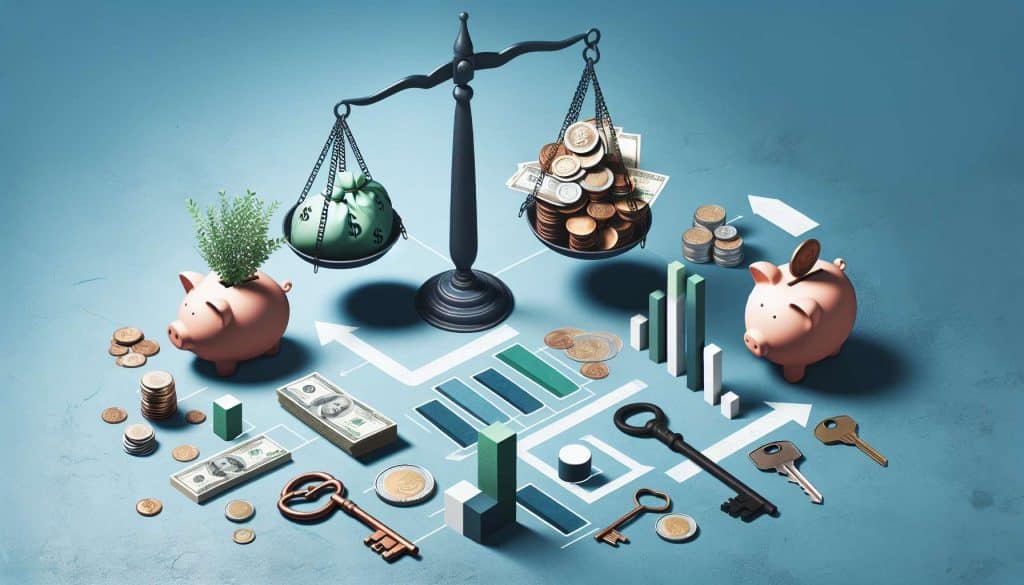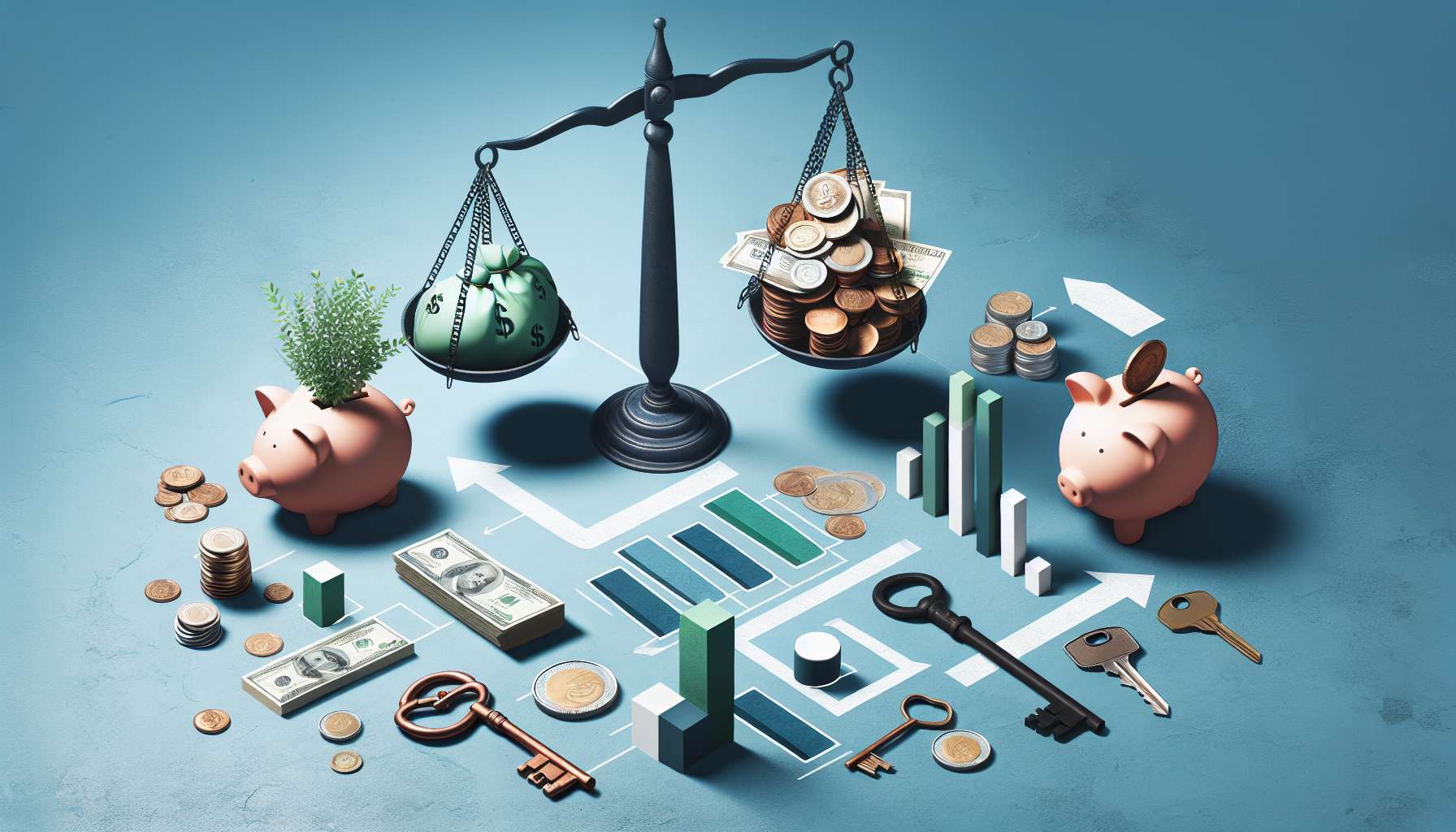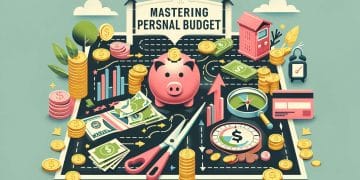Master Personal Budgeting: Transform Finances & Achieve Financial Freedom


In the hustle and bustle of today’s world, managing personal finances is a vital skill that can lead to financial freedom and stability. Efficient budgeting doesn’t just help in meeting immediate expenses but also in achieving bigger financial goals such as homeownership, educational pursuits, or retirement savings. However, the thought of budgeting often feels overwhelming for many, leading them to avoid it altogether. This article aims to simplify personal budgeting, offering actionable tips and insights.
Anúncios
Understanding the fundamentals of budgeting is essential for anyone looking to gain control over their financial landscape. At its core, budgeting is about planning expenditure to align with income, ensuring needs are met, and goals are pursued. Through disciplined budgeting, individuals can pay off debts, save more effectively, and make knowledgeable financial choices. This process is not about restriction but rather empowerment to direct one’s finances towards desired outcomes.
The misconception that budgeting is synonymous with austerity can deter individuals from adopting it. However, effective budgeting showcases where money flows, helping identify areas of needless expenditure and reallocating funds towards significant pursuits. It is about understanding earning patterns, prioritizing spending, and strategically managing finances to achieve a balance between needs, wants, and savings. Ultimately, a well-envisioned budget can transform financial stress into confidence.
Getting Started with Personal Budgeting
Initiating a personal budget can be straightforward, focusing on creating a system that harmonizes with one’s financial landscape and personal demands. The first step is identifying all income sources—whether from a regular salary, freelance work, or passive earnings. Having a precise understanding of net income allows for a more accurate budget, ensuring expenditures do not exceed what is available. Awareness of income forms the backbone of a sustainable budgeting plan.
The following stage involves diligently tracking and categorizing expenses. This consists of fixed outgoings such as rent, utilities, and loans, and variable costs such as food, entertainment, and dining. Utilizing modern budgeting applications aids in precisely monitoring these expenditures. Understanding spending habits is paramount in crafting a budget that not only accommodates but also optimizes financial activities, ensuring both necessary expenses and enjoyable splurges are part of the equation.
It is crucial to set definitive, attainable financial goals that guide the budgeting process. These goals could range from clearing existing debts, developing an emergencv fund, to investing savings for future growth. Adopting SMART goals (Specific, Measurable, Achievable, Relevant, Time-bound) provides a measurable path, making it easier to allocate needed funds towards these priorities, facilitating a clearer path towards achieving them. Effectively linking goals with resource allocation is a key step in succeeding in personal budgeting.
Developing the actual budget plan follows understanding income and expenses. A popular method recommended for beginners is the 50/30/20 rule—devoting 50% of income to necessary needs, 30% to non-essential wants, and the remaining 20% towards savings and debts. This structure helps balance life’s demands with financial targets, paving the way for disciplined but flexible financial management. Such a strategy offers actionable steps to ensure all areas of life are addressed, reducing financial anxiety.
Budget Monitoring and Adjustment
While creating a budget is a critical step, maintaining and adjusting it according to life’s dynamics ensures its effectiveness. Regularly reviewing the budget is akin to a medical checkup for financial health, revealing areas of success and scopes for improvement. Consistent assessment aids in early detection of potential overspending and allows for timely corrections, maintaining a steady course towards financial goals. Remembering the evolving nature of life helps keep the budget agile.
Life changes such as new job roles, additions to the family, or relocations inevitably impact financial standing and, thus, the budget. It’s important to be adaptable and open to revisiting and revising the budget to align with these shifts. A static budget fails to serve evolving needs, so regular updates ensure continued relevance and effectiveness in achieving financial aspirations. Constant adaptation ensures that the journey towards financial freedom remains uninterrupted.
Automating savings can play a significant role in ensuring consistent progress towards financial goals. Setting up automatic transfers to savings or investment frequently removes the hassle of manual actions while promoting discipline in saving. This mechanism instills a sense of commitmment to financial aspirations, inadvertently creating a buffer for future needs. Such proactive groundwork provides a stable foundation, reducing fiscal worries, and fostering a healthier approach towards long-term planning.
Common Budgeting Mistakes to Avoid
Despite a solid budgeting strategy, common pitfalls can undermine efforts. By understanding these mistakes, budgeting success becomes more attainable.
- Underestimating Expenses: Be realistic about expenses to avoid budget shortfall.
- Lack of Emergency Fund: Build a safety net to prevent budget collapse during unforeseen events.
- Neglecting Budget Adjustments: Stay responsive to financial changes to reap continued benefits.
Benefits of Effective Personal Budgeting
Mastering personal budgeting leads to transformative financial benefits, profoundly impacting life quality.
- Financial Clarity: Gain a clear understanding of income and expenses, fostering informed decisions.
- Goal Achievement: Strategically work towards significant financial milestones.
- Ppeace of Mind: Cultivate a sense of control and preparedness over one’s financial future.
Personal budgeting offers tangible improvements to life’s financial aspect, shifting you from reactive to proactive. This empowers decision-making regarding spending, investing, and saving, thanks to a foundation built on awareness and planning. As budgeting solidifies your financial base, achieving goals like debt elimination, savings growth, and future investments becomes obtainable. The peace of mind gathered from a balanced budget supports greater focus on personal and career growth.
As you master the art of budgeting, it gradually aligns your financial behavior with aspirations, ensuring sustainable progress towards a desired lifestyle. Understanding and cutting down unnecessary expenses leads to enhanced savings and improved money management. Solving financial puzzles becomes less daunting, minimizing stress and maximizing potential for enjoyable living. Such mastery heralds a positive transformation, paving the way for a comprehensive approach to future financial security.
Applying the principles of budgeting has long-term benefits, shaping your financial philosophy and perspective. By prioritizing meaningful financial ventures over trivial expenses, you’ll witness an overall higher quality of living. This approach reduces material dissatisfaction and distances yourself from financial burdens, achieving healthier fiscal habits. Cultivating these productive fiscal habits powers an enriched life experience focused on meaningful pursuits.
Taking the first step towards financial literacy through budgeting rewards with invaluable life skills. As the journey progresses, the empowerment from understanding intricate spending patterns and financial flows becomes more pronounced. With each financial goal attained, the confidence in one’s ability to manage finances swells, leaving you better equipped to handle life’s financial surprises. Initiate your budgeting journey and witness the long-lasting, positive effects on your financial health.
The consistent practice of personal budgeting invites a sense of stability in rapidly changing financial environments. This adaptability ensures resilience against economic fluctuations, grounding you in times of uncertainty. As budgeting becomes second nature, it crafts a map guiding towards financial upliftment, offering not just monetary control but also freedom. Reap the rewards of accumulated efforts, experiencing not just fiscal success but an enriching, fulfilling financial narrative, paving the way towards financial freedom.





